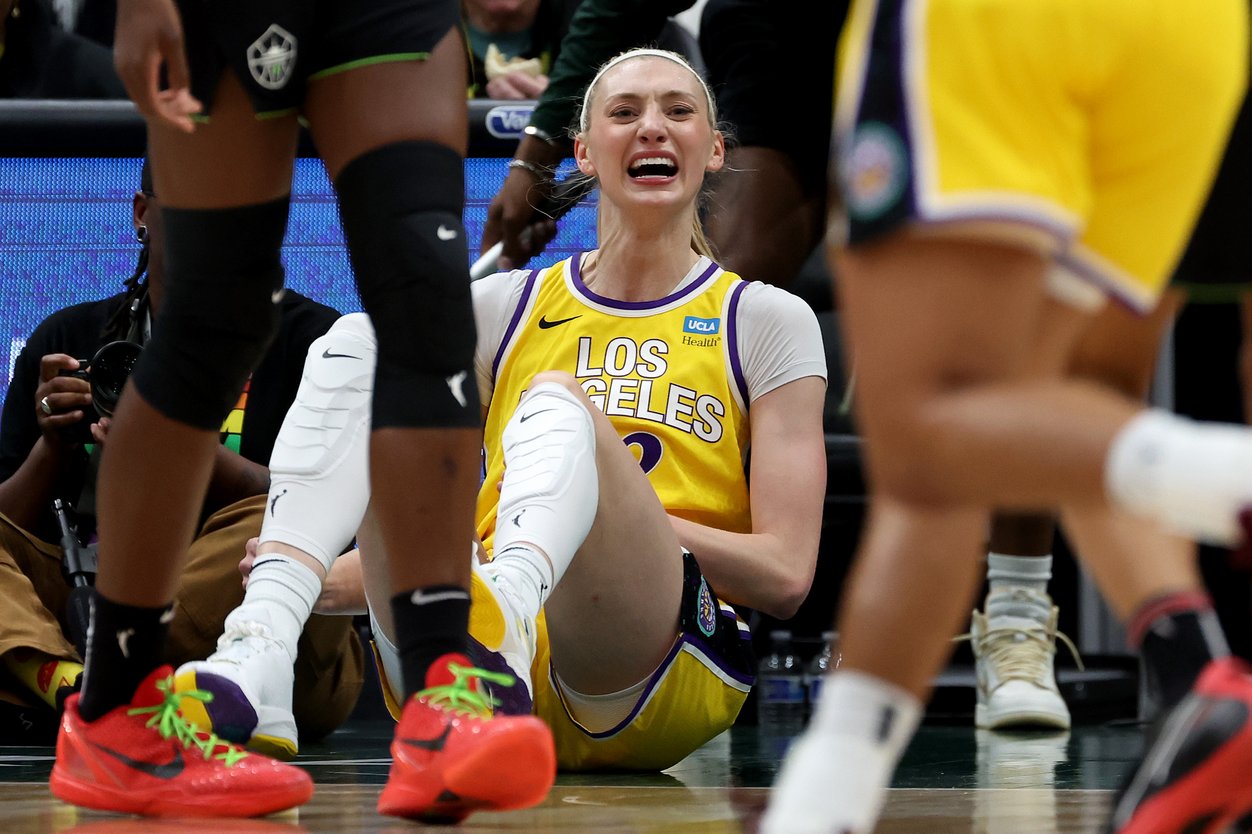closer look
Why women get more ACL tears

Cameron Brink of the Los Angeles Sparks
Female athletes are absolutely killing it at the Olympics. But did you know that there are a bunch of women athletes sitting out the 2024 Games because of ACL tears, and that women are three to six times more likely to endure an ACL tear than men?
In a STAT First Opinion, sports medicine physician Amy West explains that there's research showing estrogen can contribute to the stretchiness of ligaments like the ACL, and that in the second half of the menstrual cycle, progesterone may reduce the body's ability to recover from physical activity.
Woman are often left out of scientific research because their hormonal cycles make studies too complicated, writes West, but she and colleagues are studying 180 female collegiate athletes to find the relationship between injury and menstrual cycles. Read more from West, along with this 2023 STAT piece on how the gendered research gap is hurting women athletes.
research
I'm so FANCI
Here at STAT, we cover a lot of things that can increase cancer risk, such as tobacco, alcohol, sun exposure, chemicals, and pollution. Many of these cause DNA damage, the cumulative effect of which can lead to cancer — but researchers are still learning exactly how DNA damage and repair processes work.
In a new study in Nature, researchers figured out the longstanding mystery of why a protein complex called FANCD2-FANCI is involved in so many DNA repair processes, including CRISPR ones.
For DNA to replicate correctly, both strands of the DNA helix have to "unzip" from each other, make copies, and then re-zip themselves together. But sometimes, the strands get "cross-linked" together — the equivalent of a zipper that gets stuck. Using single-molecule imaging and cryo electron microscopy, the researchers figured out how FANCD2-FANCI recognizes damaged DNA and repairs it. They visualized how the complex slides along the DNA strand and accumulates at these jammed junctions and also found that it safeguards these "stuck" areas of DNA, protecting them from enzymes that might come along and further chew them up.
first opinion
Will caregiving be in the spotlight in the 2024 election?
At one of her earliest campaign speeches last month, vice president Kamala Harris addressed a room of campaign workers in Delaware and talked about caregiving. "We believe in a future where every person has access to paid family leave and affordable childcare," she said, to whoops and claps from the audience.
"Harris' spotlight on the care economy was short — less than 20 seconds of her roughly 30 minute-long speech — but it sparked excitement among care advocates and policy wonks," writes Jason Resendez, president and CEO of the National Alliance for Caregiving, in a STAT First Opinion.
Voters across the political spectrum — 84% of Democrats and 70% of Republicans — consider a candidate's stance on caregiving issues a crucial factor in their voting decisions, and there are many bipartisan solutions available to support those caring for loved ones, writes Resendez. Read more.


No comments